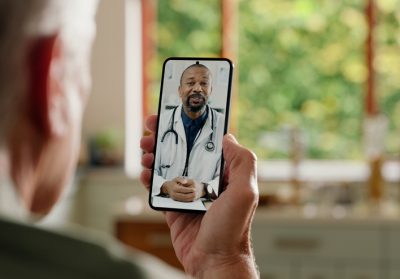
Telehealth Requires Scrutiny on Standard of Care
August 1, 2025
By Greg Freeman
Healthcare organizations continue to face potential liability from telehealth issues and must take steps to ensure patients receive quality care no matter the method of delivery.
The use of telehealth exploded during the Covid-19 pandemic when many restrictions were suspended, notes Paul D. Squire, JD, shareholder with the Polsinelli law firm in New York City.
“There also has been an evolution in the focus of the modality and what is being delivered via telemedicine. We have the rise of niche telemedicine providers focusing on different conditions, like women’s health, (gastrointestinal) issues, lower intestinal issues, multiple skeletal issues, and the most prevalent being mental healthcare delivery,” he says. “Mental healthcare delivery has been the one that’s been most widely adopted. It lends itself to its delivery via remote care.”
Niche care always emphasizes cost-effective care delivery method, so providers are attracted to telehealth, he says. Telemedicine providers and the lower-cost medium to provide access to their members and their clients.
“I think with the expansion of the delivery of care, providers have had to very much focus on how care is delivered, and there is a potential risk for licensed providers when delivering care remotely. They are still held to the same standard of care as if that individual was seeing a patient in person,” Squire says.
Healthcare organizations must have guidelines and prophylactic measures to ensure that the standard of care is met, Squire says.
“As in everything, there are good actors and bad actors. There are the actors who focus on quality of care; use board certified physicians, providers; and counselors; and have robust (quality assurance) processes in place,” he says. “There are also those with no evaluation, where it just becomes a mill to get a certain type of medication. The biggest issue currently on providers that are experiencing a lot of scrutiny today are the glucagon-like peptide-1 providers who saw an explosion of care, who saw an opportunity for individuals to use compounded drugs to get weight loss medications. They are now under a lot of scrutiny from the (Food and Drug Administration) as well as pharma.”
Source
- Paul D. Squire, JD, Shareholder, Polsinelli, New York City. Telephone: (646) 289-6513. Email: [email protected].
Greg Freeman has worked with Relias Media and its predecessor companies since 1989, moving from assistant staff writer to executive editor before becoming a freelance writer. He has been the editor of Healthcare Risk Management since 1992 and provides research and content for other Relias Media products. In addition to his work with Relias Media, Greg provides other freelance writing services and is the author of seven narrative nonfiction books on wartime experiences and other historical events.